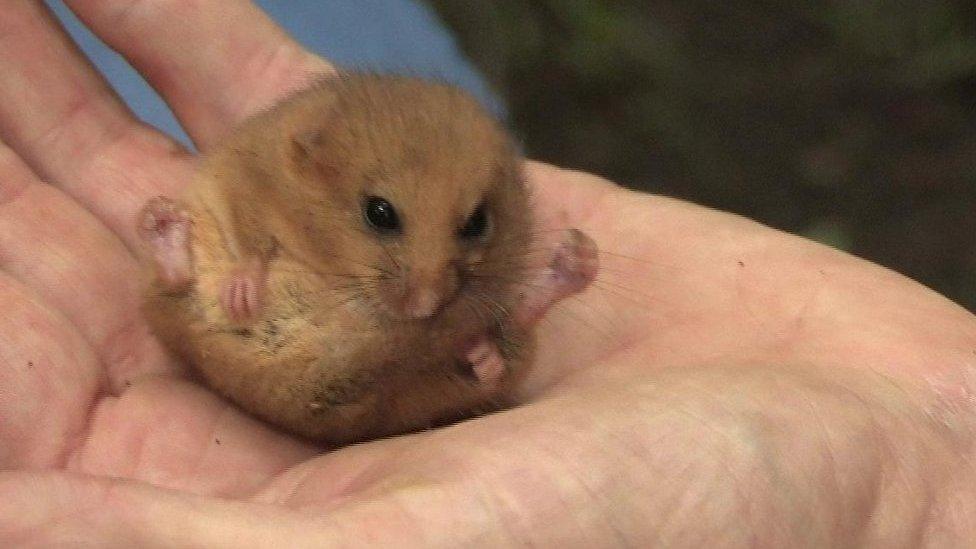Nottinghamshire woodland is new home for rare dormice
- Published
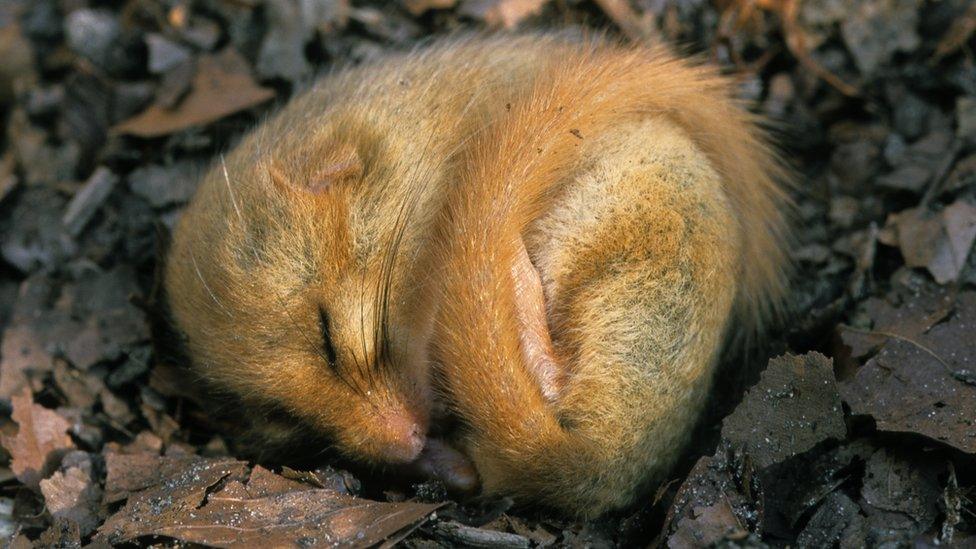
Dormice populations have fallen by a third since 2000 and have gone extinct in 17 English counties
Eleven rare dormice have been released into a secret area of woodland in a bid to boost numbers of the "critically endangered" animals.
The hazel dormice were released near Retford, Nottinghamshire, where more than a hundred have been reintroduced at three sites, since 2014.
It is hoped the mammals will create a "dormouse stronghold" at the site.
In 2016, a report found the creature had become extinct in 17 English counties.
The 11 captive-bred mice were taken to a hidden location within the woodland, after being kept in quarantine to reduce the risk of passing on non-native diseases.
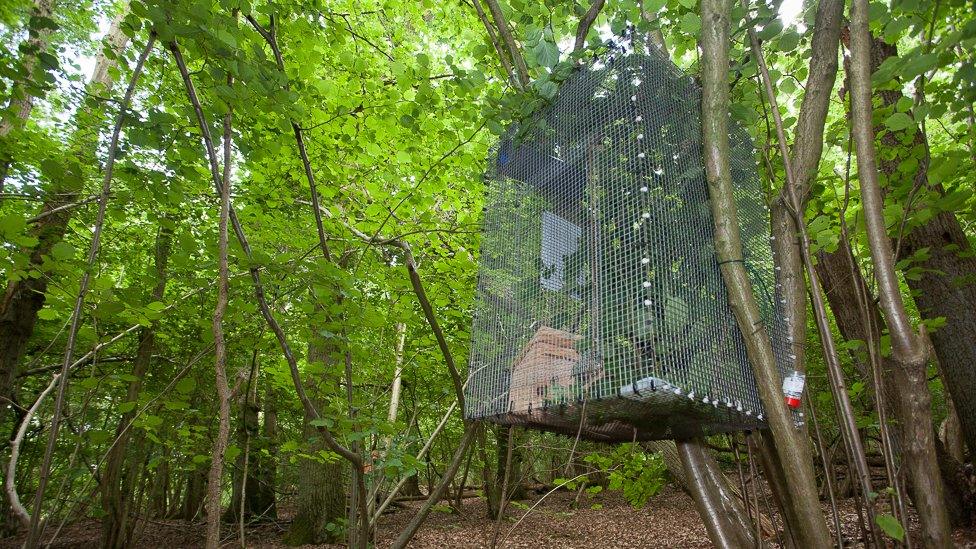
The dormice will spend 10 days in large cages before being given freedom to roam the woodland
They were due to spend the first 10 days in large cages with natural foliage, food and water, to acclimatise.
Ian White, from the People's Trust for Endangered Species (PTES), said previous reintroductions have seen the dormice disperse throughout the woodland sites.
"It's fantastic as it shows they have adapted and settled into their new surroundings," he said.
"By releasing more dormice we hope to achieve our aim of connecting the three separate populations and increasing the gene pool, creating a dormouse stronghold in the region."
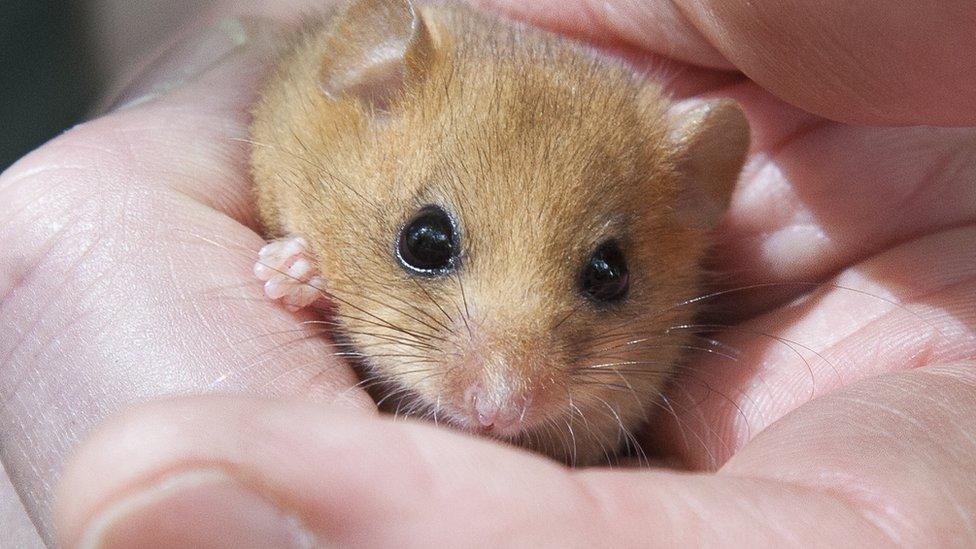
Dormice are now "well-dispersed" throughout three Nottinghamshire woodlands
The creatures live mainly in hedgerows and woods and hibernate on or near the ground in winter between October and May.
In 2016, a report identified loss of woodland and hedgerow habitat, external as factors in the creature's decline, which it said had fallen by a third since 2000.
The reintroductions are part of a Species Recovery Programme supported by Natural England, which has run for more than 25 years.
It has seen almost 1,000 hazel dormice released back into 12 English counties.

Follow BBC East Midlands on Facebook, external, Twitter, external, or Instagram, external. Send your story ideas to eastmidsnews@bbc.co.uk, external.
- Published9 September 2016
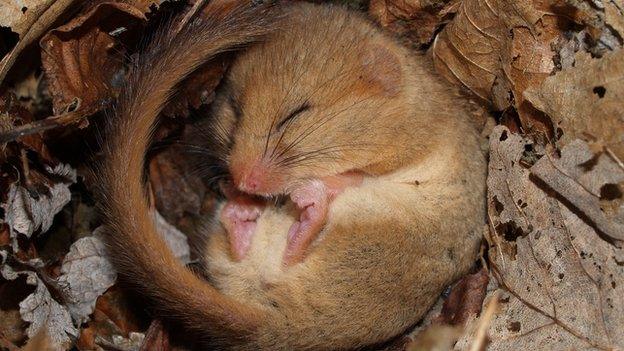
- Published27 July 2017
